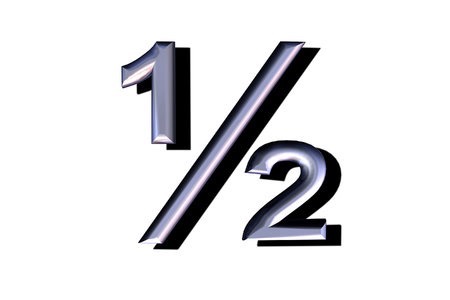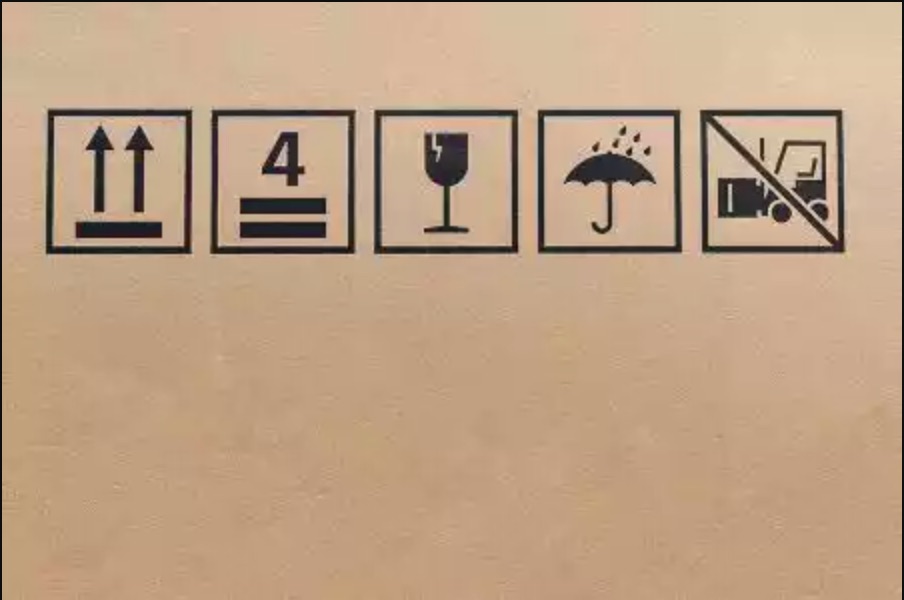*
Những bông hoa có mùi thơm.
The flowers are fragrant.
Die Blumen duften.
Las flores son fragantes.
Les fleurs sont parfumées.
I fiori sono profumati.
ดอกมีกลิ่นหอม
꽃은 매우 향기롭습니다.
花很香。
花 很 香 。 *
Chỉ có một đoạn của bố cục đã được viết.
Only one paragraph of the composition has been written.
Von dem Aufsatz ist nur ein Absatz geschrieben worden.
Sólo se ha escrito un párrafo de la composición.
Seul un paragraphe de la composition a été écrit.
È stato scritto un solo paragrafo della composizione.
มีการเขียนเรียงความเพียงย่อหน้าเดียว
작문에는 단 한 단락만 작성되었습니다.
作文只寫了一段。
作文 只 写 了 一段 。 *
Cô ấy rất thích mùi thơm.
She really likes the fragrant smell.
Sie mag diesen Duft sehr.
Le gusta mucho el olor fragante.
Elle aime beaucoup l'odeur parfumée.
Le piace davvero l'odore fragrante.
เธอชอบกลิ่นหอมมาก
그녀는 이 향기를 아주 좋아합니다.
她很喜歡這個香味。
她 很 喜欢 这个 香味 。 *
Hương hoa quyện trong không khí.
The fragrance of flowers is in the air.
Die Luft ist erfüllt vom Duft der Blumen.
La fragancia de las flores está en el aire.
Le parfum des fleurs est dans l'air.
Il profumo dei fiori è nell'aria.
ผสมผสานกับอากาศเป็นกลิ่นหอมของดอกไม้
공기 중에 꽃향기가 뒤섞인다.
空氣中夾雜著花兒的芳香。
空气 中 夹杂着 花儿 的 芳香 。 *
Có một bức vẽ của một con rồng trên tường.
There is a drawing of a dragon on the wall.
An der Wand ist ein Drache gemalt.
Hay un dibujo de un dragón en la pared.
Il y a le dessin d'un dragon sur le mur.
C'è un disegno di un drago sul muro.
มีภาพวาดมังกรอยู่บนผนัง
벽에는 용이 그려져 있습니다.
牆上畫有一條龍。
墙上 画有 一条龙 。 *
Cậu nhỏ rất can đảm.
The small boy is very courageous.
Der kleine Junge ist sehr mutig.
El pequeño es muy valiente.
Le petit garçon est très courageux.
Il bambino è molto coraggioso.
เด็กน้อยใจกล้ามาก
어린 소년은 매우 용감합니다.
小男孩很勇敢。
小男孩 很 勇敢 。 *
Cô ấy đang kéo mạnh sợi dây.
She is dragging the rope vigorously.
Sie zieht mit aller Kraft an dem Seil.
Está tirando de la cuerda con fuerza.
Elle tire fortement sur la corde.
Sta tirando forte la corda.
เธอกำลังดึงเชือกอย่างแรง
그녀는 힘차게 밧줄을 당기고 있었다.
她在用力地拖繩子。
她 在 用力 地 拖 绳子 。 *
Môn thể thao thuyền rồng có nguồn gốc từ Trung Quốc.
The dragon boat sport originated in China.
Der Drachenbootsport hat seinen Ursprung in China.
El deporte de los botes de dragón se originó en China.
Le sport du bateau-dragon est originaire de Chine.
Lo sport della barca del drago è nato in Cina.
กีฬาเรือมังกรมีต้นกำเนิดในประเทศจีน
드래곤 보트 운동은 중국에서 시작되었습니다.
龍舟運動起源於中國。
龙舟 运动 起源 于 中国 。 *
Đồ uống có cồn nên được tiêu thụ vừa phải.
Alcoholic beverages should be consumed in moderation.
Trinken Sie Alkohol in Maßen.
Las bebidas alcohólicas deben consumirse con moderación.
Les boissons alcoolisées doivent être consommées avec modération.
Le bevande alcoliche dovrebbero essere consumate con moderazione.
เครื่องดื่มแอลกอฮอล์ควรบริโภคในปริมาณที่พอเหมาะ
적당히 마신다.
飲酒要適量。
饮酒 要 适量 。 *
Cảm xúc của cô ấy rất mong manh. ((Cô ấy dễ buồn.))
Her emotions are very fragile. ((She is easily upset.))
Sie ist seelisch zerbrechlich.
Sus emociones son muy frágiles. ((Se altera fácilmente.))
Ses émotions sont très fragiles. ((Elle est facilement bouleversée.))
Le sue emozioni sono molto fragili. ((Si arrabbia facilmente.))
อารมณ์ของเธอเปราะบางมาก ((เธออารมณ์เสียง่าย.))
그녀의 감정은 매우 연약합니다.
她的感情很脆弱。
她 的 感情 很 脆弱 。 *
Hoa hồng có mùi rất thơm.
The roses smell very fragrant.
Die Rosen riechen sehr duftend.
Las rosas huelen muy fragantes.
Les roses ont une odeur très parfumée.
Le rose hanno un profumo molto fragrante.
ดอกกุหลาบมีกลิ่นหอมมาก
장미향이 너무 좋아요!
玫瑰真香!
玫瑰 真香 ! *
Tóc ngắn hiện đang là xu hướng thịnh hành.
Short hair is all the rage now.
Kurze Haare liegen jetzt voll im Trend.
El pelo corto está de moda ahora.
Les cheveux courts font fureur maintenant.
I capelli corti sono di gran moda ora.
ผมสั้นที่กำลังมาแรงในตอนนี้
짧은 발견이 대세입니다.
短發現在風靡一時。
短发 现在 风靡一时 。 *
Thường dân bị thảm sát thảm khốc.
Civilians were tragically massacred.
Zivilisten wurden auf tragische Weise massakriert.
Los civiles fueron trágicamente masacrados.
Des civils ont été tragiquement massacrés.
I civili sono stati tragicamente massacrati.
พลเรือนถูกสังหารอย่างอนาถ
민간인들은 잔인하게 살해되었습니다.
平民慘遭殺戮。
平民 惨遭 杀戮 。 *
Ăn "zongzi" [bánh bao gạo nếp gói bằng lá] trong Lễ hội Thuyền rồng là một phong tục
Eating "zongzi" [leaf-wrapped sticky rice dumplings] during the Dragon Boat Festival is a traditional custom .
Das Essen von "Zongzi" (mit Blättern umwickelte Knödel aus klebrigem Reis) während des Drachenbootfestivals ist ein trad
Comer "zongzi" [bolas de masa de arroz pegajosas envueltas en hojas] durante el Festival del Bote del Dragón es una costumbre tradicional.
Manger des « zongzi » [boulettes de riz gluant enveloppées de feuilles] pendant le festival des bateaux-dragons est une coutume traditionnelle.
Mangiare "zongzi" [gnocchi di riso appiccicoso avvolti in foglie] durante il Dragon Boat Festival è un'usanza tradizionale.
การรับประทาน "zongzi" [เกี๊ยวข้าวเหนียวห่อใบ] ในช่วงเทศกาลเรือมังกรเป็นประเพณีดั้งเดิม
드래곤 보트 축제에서 zongzi를 먹는 것은 전통적인 관습입니다.
端午節吃粽子是一種傳統習俗。
端午节 吃 粽子 是 一种 传统习俗 。
| |
|
| SAIGONESE |
|---|
| E093 |  con rồng con rồng |  dragon dragon |  Drache Drache |
|
| E181 |  trung bình trung bình |  average average |  Durchschnitt Durchschnitt |
|
| I047 |  động viên động viên |  encourage encourage |  ermutigen ermutigen |
|
| I070 |  nhà kho nhà kho |  storage room storage room |  Lagerraum Lagerraum |
|
| I206 |  trung bình trung bình |  average average |  Durchschnitt Durchschnitt |
|
| I042 |  rồng rồng |  dragon dragon |  Drache Drache |
|
| I125 |  khoe khoe |  brag brag |  prahlen prahlen |
|
| I136 |  cổ vũ cổ vũ |  cheer, encourage cheer, encourage |  jubeln, ermutigen jubeln, ermutigen |
|
| I207 |  thảm thảm |  tragic, terrible tragic, terrible |  tragisch, schrecklich tragisch, schrecklich |
|
417 覚える: memorize, learn: My little sister learned all hiragana. 1084 以下: below: My math score was below average. 1707 平仮名: hiragana: I can read all hiragana. 1922 励ます: encourage, cheer up: The father encouraged his son. 2071 中: middle, medium size: My child is of average height in class. 2574 無料: no charge, free: Beverages are free of charge. 2959 長引く: be prolonged, drag on: The meeting seems to be dragging on. 3100 収入: income: What's the average income in Japan? 3586 かんかん: furiously angry, in a rage: She is inflamed with rage. 3782 並み: ordinary, average: He's not an average person. 3796 平均: average: I work for about eight hours a day on average. 4242 わく: well up: I felt courage well up within me after my friend's encouragement. 4330 変換: change, conversion: I converted hiragana into katakana. 4436 段落: paragraph: Please read the next paragraph. 4487 車庫: garage: I put the car in the garage. 5026 引き延ばす: extend, prolong: The host dragged out the timeframe of his speech. 5265 悲劇: tragedy: We must not repeat that tragedy. 5505 もろい: brittle, fragile: This rock is surprisingly fragile. 5852 勇気: courage: He's courageous. 6632 無造作: casual; easy: Casual hairstyles are all the rage now. 7118 平年: normal year: It is cooler than average this year. 7198 ガレージ: garage; repair shop: I have put the car in the garage. 7294 節: paragraph; time: Please summarize paragraph one. 7335 表記: writing: This word is generally written using hiragana. 7681 神話: myth; mythology: Dragons are mythical creatures that appear in stories. 7712 耳寄り: ear-grabbing; hot: I have some encouraging news. 8405 ずるずる: let slide; put off: He is dragging his feet and putting off the work. 8407 悲惨: miserable; tragic: Some tragic accidents happened here. 8465 奮う: rouse up: She plucked up courage and confessed. 9073 痛ましい: heartbreaking; piteous: Tragic traffic accidents keep happening. 9108 擦る: crush; rub: As I was parking I scraped the wall of the garage. [mispronounced word in audio: 車庫] 9138 激励: encouragement: The governor visited to give encouragement. 9140 奨励: encouragement: In our company we are encouraged to take training in English. 9145 甚だしい: excessive; tremendous: It is outrageous of them to complain. 9549 蜻蛉: dragonfly: There were a lot of dragonflies flying around the river bank. | TED Talk | Segment | Vietnamese | English | |






 rag: (mean or tattered attire)
rag: (mean or tattered attire) Lumpen {m}, Fetzen {m}
Lumpen {m}, Fetzen {m} 












 con rồng
con rồng  Drache
Drache